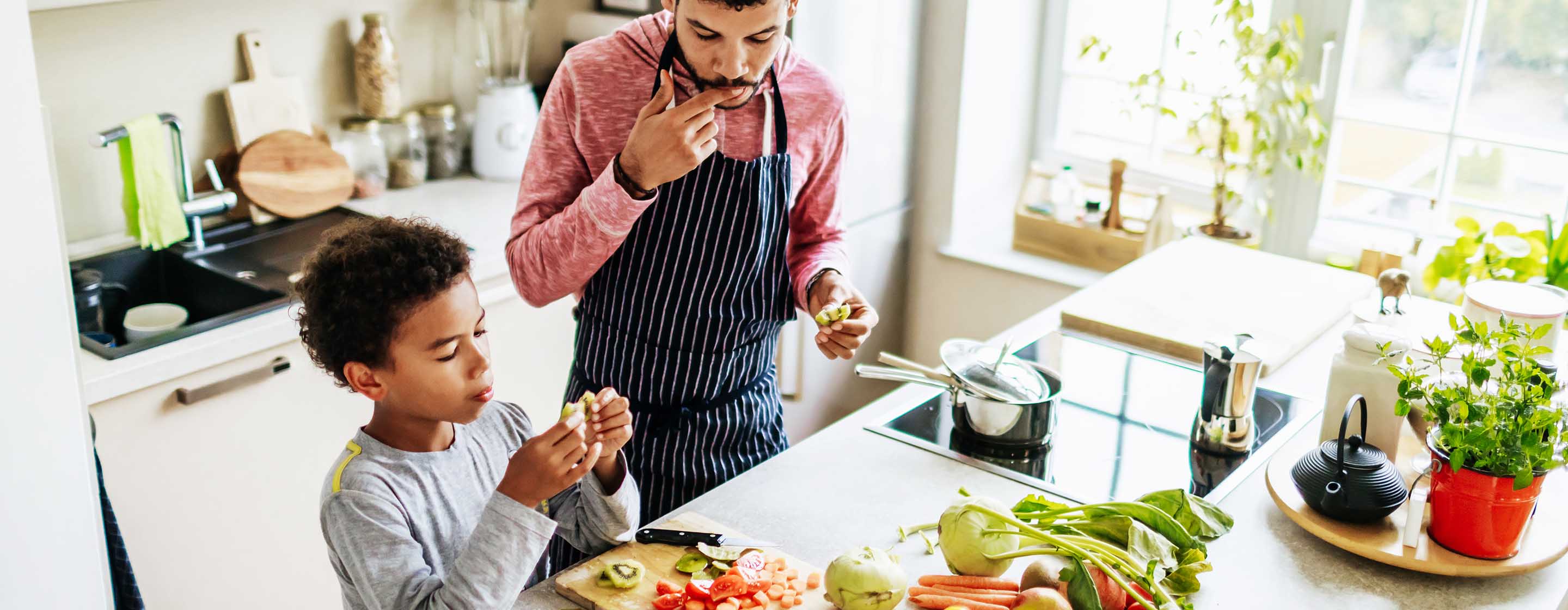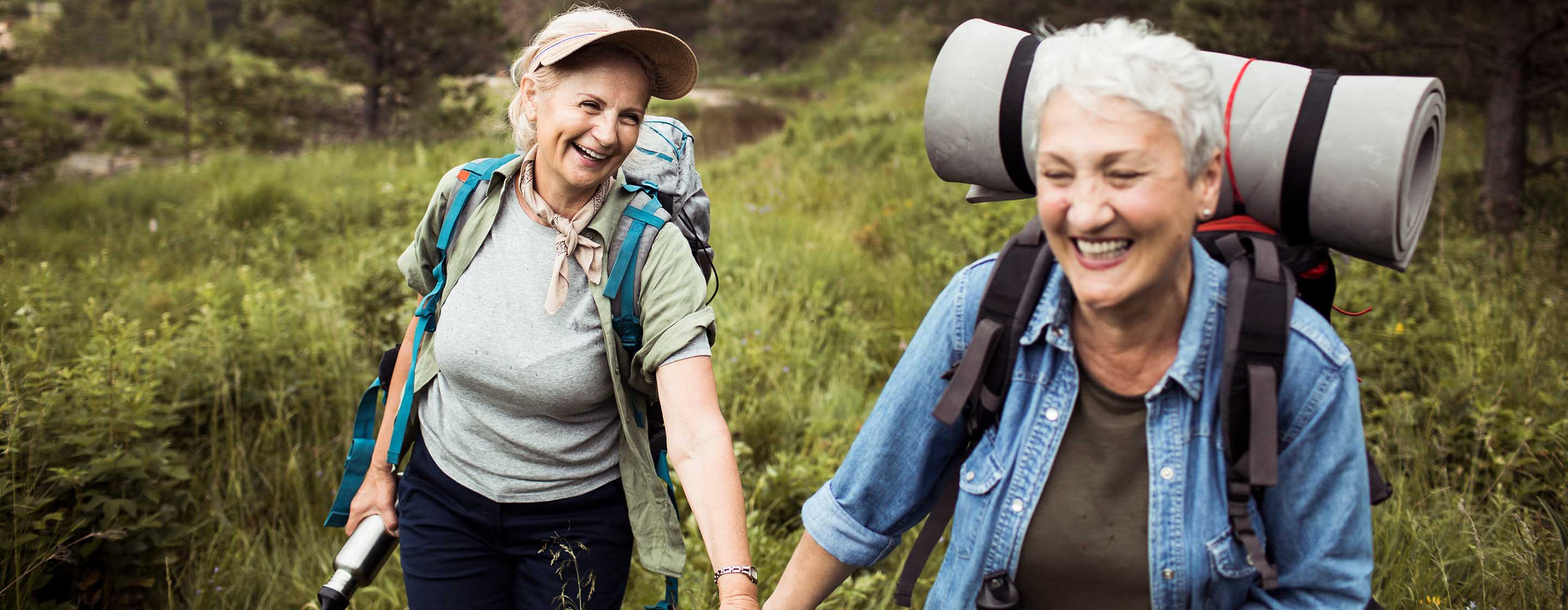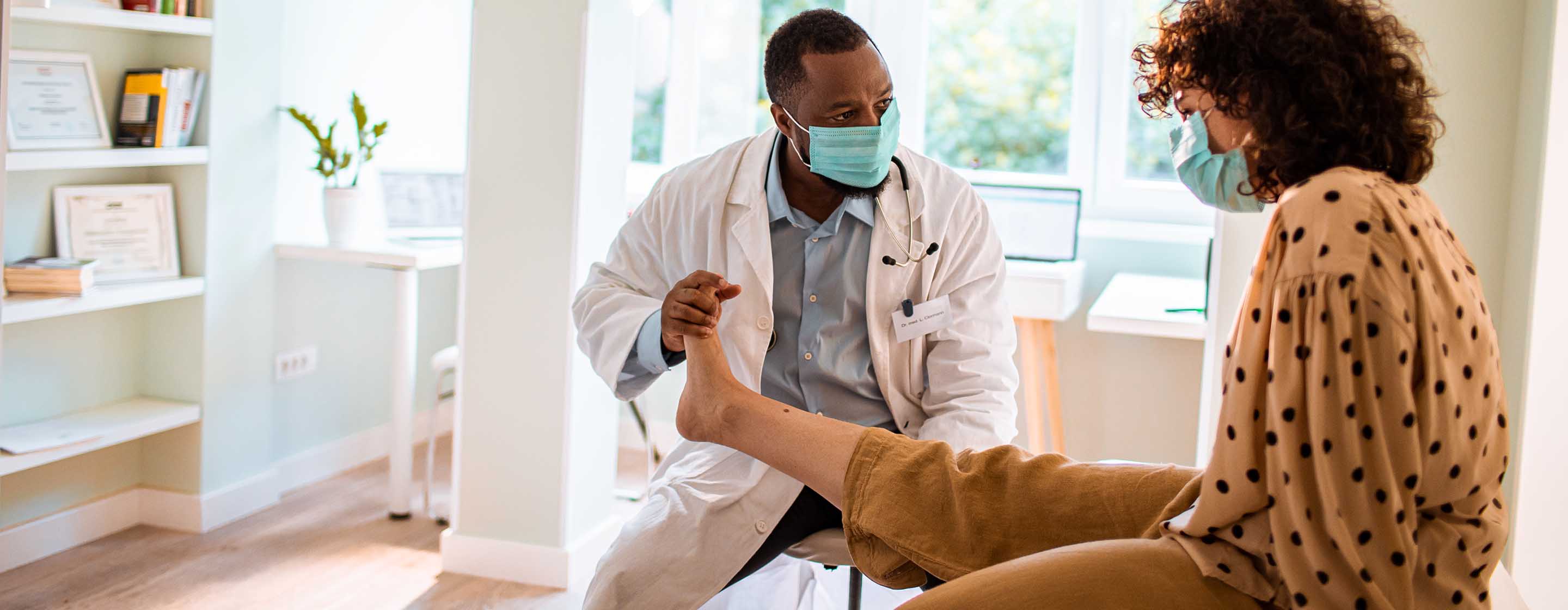Take control of your health and feel better with these five tips
After a year of province-wide restrictions, regular health and fitness routines have become a distant memory for many. It’s easy to fall into bad habits, letting our diets and exercise slip. And, if going from the desk to the fridge to the couch has become your primary source of movement, you aren’t alone.
Here are five tips to get you back on track to feeling better, to help you regain a sense of control and prioritize your happiness.
1. Choose healthier food options
You know the saying “you are what you eat”? It’s not just a cliché - it’s pretty literal. Our bodies are made up of the nutrients we consume, so making healthier choices at the grocery store has an immediate impact on our health. But let’s not kid ourselves - desserts and snacks are delicious and addictive, and it’s challenging to change our eating habits. However, challenging doesn’t mean impossible, so here are a few tips to help make eating healthy a bit easier:
- Drink more water: when you’re hydrated, your body is less likely to crave sugar.
- Eat more protein: protein slows down the release of sugar into your bloodstream, keeping your energy levels even.
- Trade sugar for spice: satisfy your sweet tooth with cinnamon, ginger and nutmeg.
- Go for healthier sweets: snacks like dark chocolate, fresh fruit or peanut butter are great alternatives.
- Make your home a safe zone: stock your shelves with healthy choices rather than sugary sweets or chips. If it’s not at hand, you’re far less likely to eat it.
2. Make time to move
We all know how important it is to move or exercise every day. It’s good for our muscles and joints, can improve the quality of sleep and is good for our mental health. But when gyms are closed, and we’re told to stay home as much as possible, moving can be a challenge.
Fortunately, you don’t have to go far to add movement to your day. There are plenty of easy exercises you can do at home, many of which can be done using your body weight and don’t require special equipment. Here’s a complete guide to bodyweight training with instructions to do each exercise correctly and safely.
You should aim to get 2.5 hours of exercise per week, and if you need help staying motivated, find an accountability buddy. Partner up with a friend, family member or co-worker, and set realistic goals for yourselves – one workout per week is better than none! If you want to add a bit of tracking or competition, use smart tech like an Apple Watch or Fitbit to monitor your progress together. If you’re looking to purchase a smartwatch or fitness tracker, head to The Source where Members save up to 20%.
3. Get outside
In addition to moving and exercising, there are significant health benefits to simply being outdoors. Fresh air has a positive effect on physical and mental healthi, so if you’re able to do so safely, find some time in your day to schedule regular walks around your neighbourhood.
You could also try a new outdoor hobby like hiking or golf - as long as you stay local and follow your region’s health guides. There are countless locations to explore on foot and plenty of golf courses across British Columbia, where Members can save 10% on green fees when they book online with GolfBC.
Another way to get outside and enjoy the warmer days is to do some gardening. It’s been found to improve your mood, protect your memory as you get older, and help you stay calm during stressful times or events. New to gardening? Get some tips from this blog to help you on your way.
4. Get enough sleep
Diet and exercise are critical to our health, but sleep plays an equal role in our well-being. Poor sleep can negatively affect hormones and brain functionii, while good sleep can help you eat less and get higher-quality exerciseiii. Rest doesn’t come easily to everybody, but these tips can help you get better shut eye:
- Get more sunlight each day by spending more time outdoors or with artificial daylight bulbs.
- Reduce blue light exposure with glasses that block blue light, or get an app that can modify your screen's colours. If you’re looking to purchase blue light glasses, BCAA Members save 50% on complete pair eyewear purchases (frames and lenses) at LensCrafters.
- Don’t drink coffee within 6-8 hours of your bedtime.
- Control the temperature, furniture arrangement and noise in your bedroom, and consider upgrading your mattress and pillows.
A good night’s sleep can make a world of difference to your health, so take the time to disconnect and get some rest.
5. Book a check-up with your doctor or dentist
While all the tips we shared here are great ways to improve your physical, mental and emotional health, it’s essential to book regular check-ups with your doctor and dentist. They’ll help give direction and advice on exercise, diet or other changes you can make to improve your overall health.
If you have benefits or insurance, check to see if you you’re covered for massage treatments, physiotherapy or acupuncture. They can be great for a bit of a tune-up, especially since we’ve all been spending a lot more time sitting lately.
And if you don’t have insurance through your employer or need more coverage than what’s offered by BC Medical Services Plan (MSP), we can help. Fill in the gaps not covered by MSP with BCAA Health & Dental Insurance and get coverage for things like prescription drugs, massage therapy, physiotherapy, glasses and more.
To learn more about BCAA Health & Dental Insurance visit bcaa.com/health.
ihttps://www.health.harvard.edu/newsletter_article/a-prescription-for-better-health-go-alfresco
iihttps://pubmed.ncbi.nlm.nih.gov/17308390/
iiihttps://pubmed.ncbi.nlm.nih.gov/10329298/










